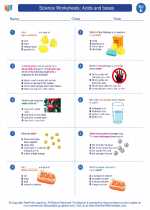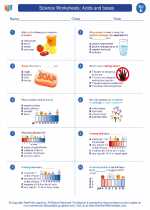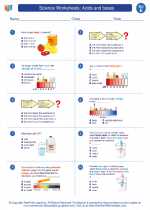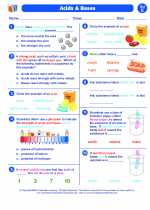What is Pediatrics?
Pediatrics is the branch of medicine that deals with the medical care of infants, children, and adolescents. Pediatricians are medical doctors who specialize in the physical, emotional, and social health of children from birth through adolescence.
Study Guide for Pediatrics
- Definition of Pediatrics: Understand the scope of pediatrics and the role of a pediatrician in providing medical care for children.
- Child Development: Learn about the physical, emotional, and social development of children at different stages from infancy to adolescence.
- Common Childhood Illnesses: Familiarize yourself with common illnesses and conditions that affect children, such as asthma, allergies, ear infections, and childhood obesity.
- Immunizations and Preventive Care: Explore the importance of vaccinations and preventive healthcare measures for children to protect them from infectious diseases.
- Child Nutrition: Study the nutritional needs of children at different ages and the importance of a balanced diet for their growth and development.
- Child Psychology: Gain an understanding of the psychological and behavioral aspects of child health, including issues such as anxiety, depression, and ADHD.
- Child Safety: Learn about safety measures and injury prevention strategies for children in various settings, including home, school, and outdoor activities.
- Specialized Pediatric Care: Explore the fields of pediatric cardiology, neurology, oncology, and other specialized areas of pediatric medicine.
By studying these topics, you can develop a comprehensive understanding of pediatrics and the specialized care provided to children by pediatricians.
.◂Science Worksheets and Study Guides Fifth Grade. Science Worksheets: Acids and bases
Study Guide Acids and bases
Acids and bases  Activity Lesson
Activity Lesson Acids and Bases
Acids and Bases  Worksheet/Answer key
Worksheet/Answer key Acids and bases
Acids and bases  Worksheet/Answer key
Worksheet/Answer key Acids and bases
Acids and bases  Worksheet/Answer key
Worksheet/Answer key Acids and bases
Acids and bases  Worksheet/Answer key
Worksheet/Answer key Acids and bases
Acids and bases  Vocabulary/Answer key
Vocabulary/Answer key Acids and bases
Acids and bases  Vocabulary/Answer key
Vocabulary/Answer key Science Worksheets: Acids and bases
Science Worksheets: Acids and bases 

 Activity Lesson
Activity Lesson
 Worksheet/Answer key
Worksheet/Answer key
 Worksheet/Answer key
Worksheet/Answer key
 Worksheet/Answer key
Worksheet/Answer key
 Worksheet/Answer key
Worksheet/Answer key
 Vocabulary/Answer key
Vocabulary/Answer key
 Vocabulary/Answer key
Vocabulary/Answer key

The resources above cover the following skills:
PHYSICAL SCIENCE
Matter and Its Interactions
Students who demonstrate understanding can:
Make observations and measurements to identify materials based on their properties.